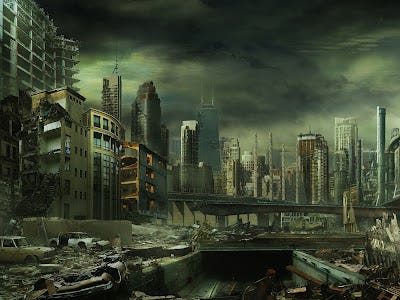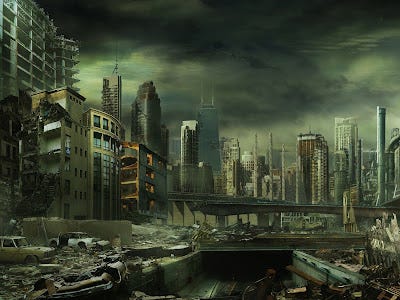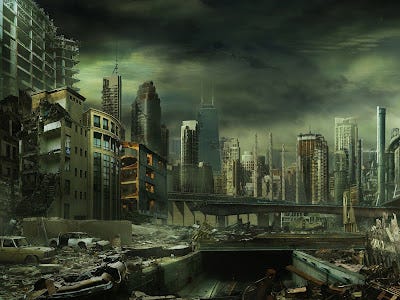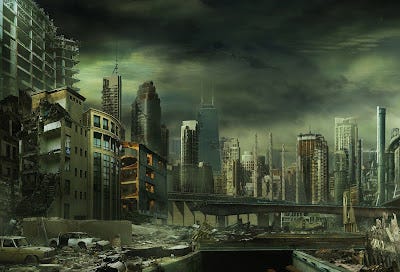*

Muffled. As the sun set by the pool. The heat sapped any energy to do anything. The Khmers were already out dancing. There was a change of emphasis; and seasonally adjusted they could have taken on so many lives; but here they were, the aging, impossible parents lounging around while Henrietta prepared to go out with Laura. Some nights were meant to be quiet, indistinct. The house boy finished cleaning the cars. Another beer appeared in his host's hands. Ancient voices weren't going to toll this particular scene; this was all of our own making. And time, the cruelest river. Hard to believe she was cute once; when I met her, in 1989, he said to one of the geologists, and all these years later her thickened legs and scratched face and endless talk, with herself at the centre of the known universe, all of it had born fruit in this wasted afternoon. I'll do it for costs and a few hundred dollars, he said of yet another potential adventure, hiking in the remote parts of Laos, telling stories where the heat came down and only one side was ever told: the side they wanted the public to hear. From story teller to propagandist in a flash. All that curious integrity, what had it even meant?
One side could easily just be the flip of the other. But it wasn't always so. There were no straight lines in nature; or in stories. Muffled; that's how it was. He didn't know what to say to his own daughter and sometimes uncomfortable days just passed without resolution, without even spectacular views of the river to justify their existence. A-B-C-D came the chant from the school next door, a training camp for the poor to go on to work in other countries. Crowded. There must be a good 200 in there; the chatter, sometimes of classes, sometimes of idle hours, drifting down across the pool and the sheltered shade, the comfortable chairs, the no reason to do nothing air. Their hostess had already threatened to shoot any of them that came near her compound or her family; and had the Glock to carry out her threat. No Weapons read the sign at the entrance to her favourite spa. The servants had been busy cleaning up after the previous night's party; and already there was barely a sign a band had pumped out songs here until the early hours and a hundred people had eaten and communed in a language he could not understand. It wasn't going to be a saving grace; but oh so awkward, oh so calm, desire written deep in the limpid heat, a tangible thing graced with lost opportunity: hand it over to the young.
So they watched as their daughter disappeared behind the dark windows of the new Lexus; and disappeared into the Pnom Penh night. And for them there was nothing but faltering conversation. He didn't believe a word that came out of her mouth and she had a remarkable ability to believe her own lies. No one had worked harder or longer or sacrificed more. No one had put up with a more impossible ex. So this was the last of it; really; the last of their responsibilities; when she had said: you've got to be joking, I can't be pregnant again, I'm not going through with it; and he, a Right to Lifer in a formal life, said, another would be nice, get it all over with, even if she had got pregnant on the very first occasion after the birth of their son; and so it evolved, I'll only go through with it if she's born overseas. And so it was, they embarked on another adventure. And even now he told the story in those lazy afternoons: there we were, with Suzy determined to have a child overseas, in Crete in the off season amongst the supposedly child loving people of Greece with the expats going: you've got to be joking, do you know what the hospitals are like here?
And the wind whipping off the harbour, fronting the giant white edifice of their empty hotel. And coming back to the hotel with Sammy, who had just consumed his fill of moussaka and milk at a local restaurant. So Sammy throws up all over the double bed at the same instant as the gale winds blow in the entire glass front window of their hotel room, leaving the one-year-old and his heavily pregnant mother surrounded by glass and vomit as the wind whipped in off the harbour. And he knew knew clearer than anything in the Greek Orthodox Church next day: Dear God, I am in the wrong place at the wrong time. And so it was that Christine's jaw dropped as he told the story on the phone; and they flew to Yorkshire, defying regulations about traveling pregnant, and Hen was born amidst the snow dusted hills and the freezing cold. And now, all these years later, the girl's long blond hair made her stand out as she went off into the Cambodian night; leaving her shambling old parents to waste away the evening in whatever way they chose. The old dags. The embarrassments. Pity she's a girl, that face isn't exactly pretty; they had said for the first month; that funny crumpled thickened face that only weeks later turned to normal then to pretty. Time is the enemy of man.
He wrote the story Roam Birth, as he wrote about anything and everything, with a picture of his daughter peering over the top of a plastic balloon depicting the globe and after it was published in the Sydney Morning Herald people went: only you, how could you even think of doing that? And they brushed it off in a brazen way; as if no normal rules applied to them; but then they were nesting; and the world was full of promise, and with a new born to care for the world was a different place; even working, even fighting with or befriending the neighbours, fighting with the landlord, setting up house, buying their first home. Everything at last had seemed like it was going to be normal. Everything told them they were normal people; young children, young mum, proud dad. The chaos was to begin early and last long; but not just yet. Every family knows that hushed feeling of hope; a new child, a new place, new beginnings and a promise that spreads out to infinity; life is going to be alright. Perhaps there were signs, but he was too busy to notice. They bought their first computer; an Apple Mac Classic; and marveled at how clever the technology was. One day they might even have mobile phones, they speculated, ones you can just carry around and talk into. The world was changing: and with two adoring kids glued to him, for once he was happy to be a part of it. Eighteen years later he stood near his ex in the grounds of a Pnom Penh mansion, watching their daughter climb into a car with another group of young people, off to a wedding party. Much, indeed, had changed. None of it was predictable.

THE BIGGER STORY:
http://www.reuters.com/article/idUSSGE63904C20100410?type=marketsNews
BANGKOK, April 10 (Reuters) - Thai troops fired rubber bullets and tear gas at thousands of demonstrators, who fought back with guns, grenades and petrol bombs in riots that killed 12 people, Bangkok's worst political violence in 18 years.
At least 521 people, including 64 soldiers and police, were were wounded in the fighting near the Phan Fah bridge and Rajdumnoen Road in Bangkok's old quarter, a protest base near government buildings and the regional U.N. headquarters.
Twelve people died, including three soldiers, an emergency medical centre said.
Among those killed was Reuters TV camerman Hiro Muramoto, a 43-year-old Japanese national who had worked for Thomson Reuters in Tokyo for more than 15 years and had arrived in Bangkok on Thursday to cover the protests.
"I am dreadfully saddened to have lost our colleague Hiro Muramoto in the Bangkok clashes," said David Schlesinger, Reuters Editor-in-Chief.
"Journalism can be a terribly dangerous profession as those who try to tell the world the story thrust themselves in the centre of the action. The entire Reuters family will mourn this tragedy."
Hundreds of "red shirt" protesters also forced their way into government offices in two northern cities, raising the risk of a larger uprising against Prime Minister Abhisit Vejjajiva and his 16-month-old, military-backed government.
Washington urged both sides in the conflict to show restraint.
http://www.smh.com.au/world/thousands-flee-bangkok-20100411-s0a8.html
Up to 15 people have been killed and thousands of tourists forced to flee, after Thai soldiers opened fire on red-shirt protesters in Bangkok in pitched battles all over the city.
After a month-long standoff between the anti-government red-shirts and Thai security forces, troops yesterday moved in to remove the red-shirts from the key intersections they’d occupied in the Thai capital.
But, meeting a resolute red-shirt army, the previously good-natured demonstrations suddenly turned violent.
Reports say up to 15 people were killed - a hospital spokesman last night confirmed 10 deaths - and more than 600 injured, after soldiers, who initially fired rubber bullets at protesters, began firing live rounds.
Four soldiers are believed to have been killed in the rioting and violence which followed. No Australians are among the dead or injured.
Some of the fiercest fighting occurred at the eastern end of famed tourist strip, Khao San Road, when riot police, backed by soldiers, attempted to push back red-shirt protesters from their base.
Nicholas Gilmore, 26, from Perth, said the red-shirt protesters refused and then, faced with advancing lines of police and soldiers, began throwing rocks and pieces of brick.
‘‘I was just standing there, taking pictures, then the guy near me threw something at the troops... I think it was a bamboo stick... and they just started shooting at him.
‘‘The first bullet just missed me, it was so loud, I could feel it come right past me, it must have missed me by a foot.’’
Mr Gilmore told The Age that the troops fired rubber bullets initially.
‘‘But then, as I was standing round the corner, someone said they were firing live rounds, so I wasn’t too keen to come around again. They were just firing and firing, indiscriminately.
‘‘There were explosions going off too, I don’t know what they were, but they were incredibly loud.’’
Peter Foster, 23, and Ryan Bekavak, 25, from Brisbane were caught on the rooftop of the hotel for more than three hours as the gun battle raged below them.
Helicopters which had been circling overhead all afternoon dropped teargas to try to disperse the protesters.
‘‘But then the gunshots started, and it was just continuous,they just kept firing. We couldn’t move from where we were in the hotel, but we could just kept hearing more and more shots fired,’’ Mr Foster said.
Late last night, the red-shirts were in control of much of Bangkok. While cordons of troops were still on the streets, most of the key intersections in the capital were controlled by red-shirts.
The protesters set up makeshift barriers using logs, metal barricades and barbed wire to stop police and army vehicles moving through.

http://wall.alphacoders.com/images/337/33746.jpg



